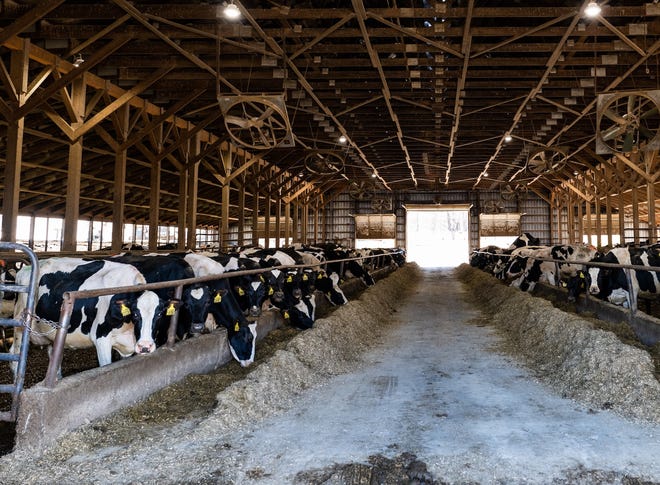Vermont spent more than $285 million on programs and policies to support dairy farmers between 2010 and 2019, according to a report released Monday by the state auditor.
Doug Hoffer said he investigated the expenditures on dairy farming “to serve as a resource for State policymakers, program managers, and the public as they consider the future of dairy in Vermont and what role public funds should play.”
The number of dairy farms in Vermont decreased from 4,017 farms in 1969 to 636 farms in 2020. Yet dairy farming still took up 52% of the state’s farmland in 2017, and accounted for 65% of Vermont’s agriculture sales, making it an important part of Vermont’s identity.

“For decades, however, Vermont dairy farms have struggled to remain profitable, and many have closed or consolidated,” Hoffer wrote.
Hoffer also notes that dairy farming is linked to harmful environmental impacts, and that phosphorus runoff from farms contributes to poor water quality, in Lake Champlain for example.
Hoffer breaks down the state’s expenditure of $35 million on dairy in fiscal year 2019, the most recent year of its analysis:
- Dairy farms received an estimated $13.4 million benefit from tax credits in FY19, exemptions and exclusions.
- Dairy farmers received $13 million in state tax savings and grants to keep their land in agricultural use in FY19.
- The state spent $983,000 in FY19 to provide business grants and technical assistance to dairy farms.
- Hoffer estimates $274,000 of foregone revenue from reduced fees for dairy farm truck registrations and anaerobic digester registrations in FY19.
- In FY19, the state spent $7.4 million to provide grants and technical assistance to address detrimental environmental impacts of some dairy practices.
Source: burlingtonfreepress.com









